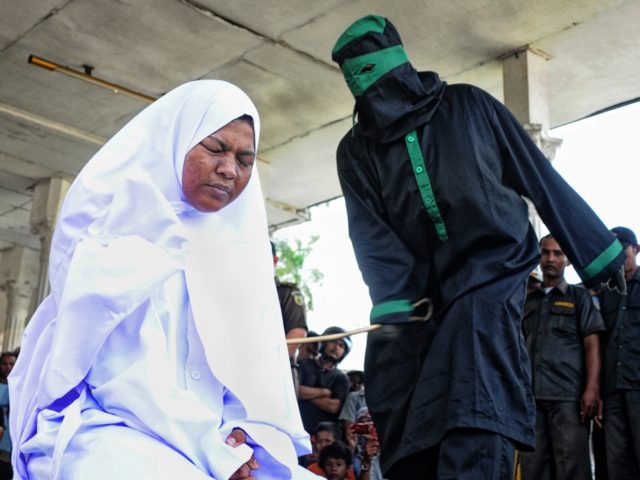Stoning to death for gay sex and amputation for theft are just two provisions in new legislation planned for the tiny, oil-rich Asian state of Brunei that have drawn criticism from human rights groups.
The penalties, which also apply to children, are outlined in new sections under Brunei’s Sharia Penal Code and will begin on April 3. The legal changes were announced in a discreet notice on the attorney general’s website, AP reports.
Amnesty International on Wednesday slammed the new legislation, saying it was “cruel” and “inhuman”.
“To legalize such cruel and inhuman penalties is appalling of itself,” said Rachel Chhoa-Howard, Brunei researcher at Amnesty International. She said some of the potential offenses “should not even be deemed crimes at all, including consensual sex between adults of the same gender.”
“Brunei must immediately halt its plans to implement these vicious punishments and revise its penal code in compliance with its human rights obligations,” Chhoa-Howard said. “The international community must urgently condemn Brunei’s move to put these cruel penalties into practice.”
The latest move in the strict imposition of strict Islamic law in Brunei was first flagged back in 2014 when the Sultan, Hassanal Bolkiah, announced the first phase of Sharia. “With faith and gratitude to Allah the almighty, I declare that tomorrow, Thursday 1 May 2014, will see the enforcement of sharia law phase one, to be followed by the other phases,” the monarch decreed.
The first phase introduced fines and jail terms for offences such as indecent behaviour, failure to attend Friday prayers, and falling pregnant outside of wedlock. The next phase, covering crimes such as theft, will involve punishments such as severing limbs and flogging, has now officially been implemented.
Brunei is one of the most developed nations in East Asia, deriving much of its wealth from oil. Its healthcare, education system and public services are heavily subsidised, yet it retains an absolute monarchy with no sign of democratic reform for the foreseeable future.
The small state is situated on the island of Borneo, which it shares with Malaysia and Indonesia.
Although the new Sharia code is believed to be popular among the Muslim ethnic Malays who make up 70 percent of the country’s population, the laws will also apply to non-Muslims. Around one-third of Brunei’s residents are non-Muslim, including substantial Buddhist and Christian communities.
Amnesty labeled the Sharia amendment as a “deeply flawed piece of legislation” with a range of provisions that violate human rights.
There has been no vocal opposition to the law in Brunei, where Sultan Hassanal Bolkiah rules as head of state with full executive authority. Public criticism of his policies is extremely rare.
The Sultan, who has reigned since 1967, has previously said the Shariah Penal Code should be regarded as a form of “special guidance” from God and would be “part of the great history” of Brunei.
Under secular laws, Brunei already prescribes caning as a penalty for crimes including immigration offenses, for which convicts can be flogged with a rattan cane.
In 2015 the Sultan banned the celebration of Christmas in any form, warning residents of his country that if they plan on celebrating the Christian festival, they could face up to five years in jail.
AP contributed to this report
Follow Simon Kent on Twitter: Follow @SunSimonKent or e-mail to: skent@breitbart.com

COMMENTS
Please let us know if you're having issues with commenting.